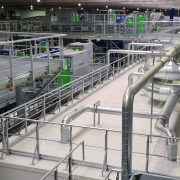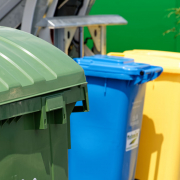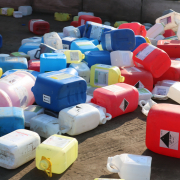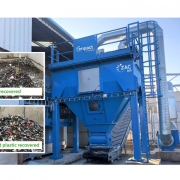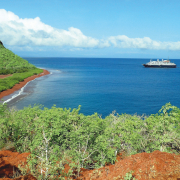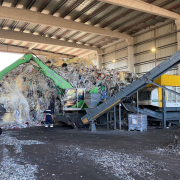Mozambique and the Country’s Struggle against Waste
It is estimated that the Republic of Mozambique’s more than 30 million inhabitants generate at least 4.2 million tons of waste per year. More precise data is not available.
As reported by the Mitigation Action Facility – a platform for providing technical support and climate finance for ambitious mitigation projects to decarbonize key sectors of the economy and society – the number of people residing in Mozambican urban areas has tremendously increased. The population in the country’s conurbations rose from 3.3 million in 1990 to over ten million in 2017 alone; this dynamic development continues. However, the rapid urbanization, combined with increasing economic activity, has led to a substantial growth of waste volumes, the Mitigation Action Facility informed. “Reportedly, an estimated 40-60 percent of the waste is collected, although, in practice, collection rates might be lower (20-30 percent). Over 98-99 percent of the collected waste is disposed of in uncontrolled dumpsites with the remaining one to two percent being reused/recycled through informal networks.”
Nevertheless, there are projects to improve the situation. From 2024 to 2029, the project “Programme for Sustainable Waste Management in Mozambique” will support the government of Mozambique “in addressing the challenges associated with municipal solid waste management (MSWM) through a comprehensive and ambitious intervention with the final aim of building a circular economy”. To do so, the project would promote investments in Integrated Waste Treatment and Disposal Facilities (for instance Material Recovery Facilities and sanitary landfills/composting facilities) in three municipalities, the Mitigation Action Facility wrote on its homepage.
The project is performed in cooperation with the Mozambican Ministry of Land and Environment (MTA). The Belgian Development Agency Enabel serves as an implementation organization, while other project partners are the National Fund for Sustainable Development (FNDS) and the National Association of the Mozambican Municipalities (ANAMM). It is planned that the Financial Cooperation (FC) component of the project will consist of public investment in waste infrastructure projects through public procurement and results-based financing grants regarding the quantities of recyclable materials that are being recovered and recycled (only for Material Recovery Facilities).
Furthermore, the project would give technical assistance and capacity development support to the Ministry of Land and Environment and the National Fund for Sustainable Development to create the necessary institutional and technical capacities. The assistance provided by Enabel would also include project preparation activities, institutional capacity development at the municipal level and awareness raising, the Mitigation Action Facility announced. “The target group of the project will be municipal governments. In addition, the project will indirectly benefit an estimated 1,680 waste pickers, micro-entrepreneurs and members of associations and community-based organizations involved in recycling.”
For the implementation of the project, three municipalities were pre-selected (Nampula, Nacala and Pemba) based on technical criteria related to the relative readiness of the municipalities in setting up the proposed waste treatment infrastructure and value chain activities. It is expected that the initiative will be co-financed by the Mozambican government. Thus, 700 million Mozambican Metical (about eight million Euro) will be contributed to the construction of MSWM infrastructure and will utilize incomes from the upcoming Environmental Tax on Packaging (ETP), the information said.
The participants expect that the project will result in 88,000 tCO2e (tons of carbon dioxide equivalent) of direct emission reductions and 55,000 tCO2e of indirect emission reductions during the implementation period. By 2030, the total (direct and indirect) emission reductions will have reached 519,000 tCO2e, the Mitigation Action Facility is convinced. This would correspond to approximately 50 percent of the NDC*) emission reduction target for the waste sector in Mozambique.
A digital waste app for plastic recycling
As underlined in the report titled “The Future of Plastic Waste is Circular: The role a digital app can play in making it happen – a Mozambican perspective”, published in December 2023, Mozambique generates nearly 700,000 tons of plastic waste annually but only 1.5 percent of that amount is recycled. “The proportion is even lower in rural areas due to a lack of collection facilities. Waste is often burned or dumped on vacant land, and into rivers, lakes and ocean. Meanwhile, over 130,000 catadores (the Portuguese word for informal waste picker or ‘scavenger’) collect any recyclables such as metals, cardboard, glass and plastics,” Africa RISE (Reform for Investment and Sustainable Economies) informed on its homepage.
AMOR, an NGO and Mozambique’s leading recycling advocate, approached EU-funded Africa RISE in early 2023 to request support to pilot the digital waste app Kolekt in Mozambique. A team of experts was subcontracted by Africa RISE to implement the initiative. The app was piloted with different target groups including businesses, waste pickers and recyclers.
The project kicked off in March 2023 in Mozambique with an implementation period of eight months. At the beginning of May, the pilot started with the recycler Topack, the only end-to-end plastic recycler in Mozambique. “With the Kolekt app, they sought to identify the sources of HDPE, PP and PET plastics, and the collectors. They also wanted to better monitor the buying of plastics and cash management by their truck drivers,” the report described the goal.
Therefore, the pilot started with training Topack’s staff who receive the deliveries of recyclable material, followed by the drivers of Topack’s recycling collection trucks, and those of partner recycling collection agencies. “The vehicles use Kolekt to register their purchases, and Topack uses it for their own purchase of this material.”
AMOR also piloted the app at an existing “Eco Point” in the country’s capital Maputo that uses municipal land. It is the organization’s first installation of this kind and is now run under the microenterprise RLR. The collection point first used Kolekt to register their current stock. “They then used the app to register all purchases and sales of recyclable materials, a system currently being tracked on paper. Kolekt makes it easier for them to track their inventory and register their clients (suppliers).”
In July last year, midway through the project, Africa RISE assessed the pilot and collaborated with 60 Decibels (60dB), a tech-enabled impact measurement company, to gather data. Fifty users with Smartphones from 423 lists of users were selected. As reported, Topack and AMOR used the results to take action and improve the app business model.
The results
According to the report, in six months (from the beginning of May to the end of October) over 5,400 transactions and more than 380 tons of plastic waste have been collected and traded through the app in three regions of the country. Waste pickers also benefitted. The app has made the job easier because they no longer need to “hunt” around town for waste as they used to. Moreover, they earn more money. As reported, more than 73,000 Euro has been generated for waste pickers from transactions through the app, “a more secure, reliable and trustworthy system for the most vulnerable people from the plastics value chain”. The app would work well for informal collectors “that have a simple feature phone or even no phone at all. This allows them to receive bonus points, trade, and log in to cash out their points using face recognition with the app installed on someone else’s smartphone.” In Mozambique, the number of users increased from ten in May 2023 to 423 in July and more than 1,800 users at the end of October 2023.
A further advantage: Over six months “Topack has made over 4,800 transactions and has gained over 1,500 users”; 90 percent were informal waste pickers, and approximately 80 percent were women. Over the same period, AMOR has made 600 transactions at its four EcoPoint buying centers. It has registered 600 new sellers of which the most were informal collectors, mainly women, Africa RISE pointed out.
Business Opportunities
Mozambique is an attractive destination for investments, the Mozambique Investment and Export Promotion Agency (APIEX) underlined on its homepage. According to the information provided by the agency, the country’s economy has registered growth in the last decade “benefitting from substantial inflows of foreign direct investment (FDI) into various sectors, notably agriculture and agro-industry, tourism, infrastructure development, energy, fisheries and aquaculture, industry, mineral resources (mainly coal and gas) and banking, among others”.
The “Investment Guide”, “Mozambique Investment Procedure Guide”, “Tax Compliance Guide for Foreign Investors Mozambique” and “Mozambique Business Licensing Guide” can be downloaded at https://apiex.gov.mz/invest/.
*) The nationally determined contributions (NDCs) are commitments countries make to reduce their greenhouse gas emissions as part of climate change mitigation. These commitments include the necessary policies and measures for achieving the global targets set out in the Paris Agreement, the free online encyclopedia Wikipedia explains.
(Published in GLOBAL RECYCLING Magazine 3/2024, Page 22, Photo: Liudmila / stock.adobe.com)


